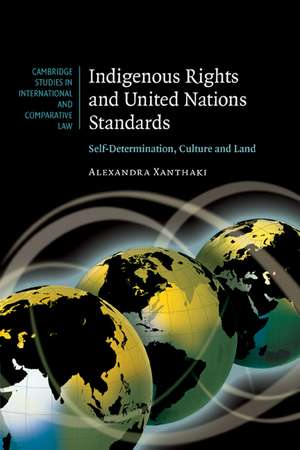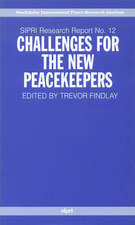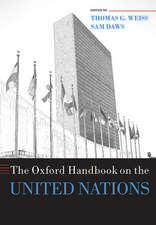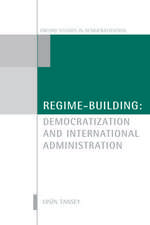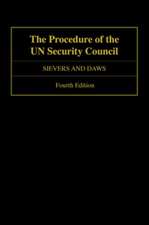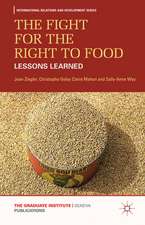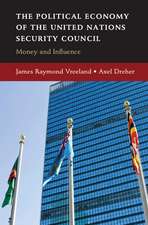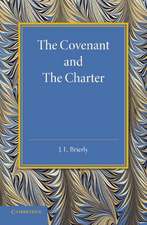Indigenous Rights and United Nations Standards: Self-Determination, Culture and Land: Cambridge Studies in International and Comparative Law, cartea 52
Autor Alexandra Xanthakien Limba Engleză Paperback – 24 noi 2010
| Toate formatele și edițiile | Preț | Express |
|---|---|---|
| Paperback (1) | 385.01 lei 6-8 săpt. | |
| Cambridge University Press – 24 noi 2010 | 385.01 lei 6-8 săpt. | |
| Hardback (1) | 785.64 lei 6-8 săpt. | |
| Cambridge University Press – 16 mai 2007 | 785.64 lei 6-8 săpt. |
Din seria Cambridge Studies in International and Comparative Law
-
 Preț: 176.91 lei
Preț: 176.91 lei -
 Preț: 233.37 lei
Preț: 233.37 lei -
 Preț: 231.74 lei
Preț: 231.74 lei -
 Preț: 201.40 lei
Preț: 201.40 lei - 9%
 Preț: 661.95 lei
Preț: 661.95 lei -
 Preț: 230.94 lei
Preț: 230.94 lei -
 Preț: 200.46 lei
Preț: 200.46 lei -
 Preț: 231.88 lei
Preț: 231.88 lei - 9%
 Preț: 731.44 lei
Preț: 731.44 lei - 9%
 Preț: 765.91 lei
Preț: 765.91 lei -
 Preț: 237.53 lei
Preț: 237.53 lei - 9%
 Preț: 773.85 lei
Preț: 773.85 lei -
 Preț: 329.28 lei
Preț: 329.28 lei - 14%
 Preț: 793.62 lei
Preț: 793.62 lei -
 Preț: 238.11 lei
Preț: 238.11 lei - 9%
 Preț: 596.72 lei
Preț: 596.72 lei - 9%
 Preț: 593.37 lei
Preț: 593.37 lei - 9%
 Preț: 917.66 lei
Preț: 917.66 lei -
 Preț: 239.72 lei
Preț: 239.72 lei - 11%
 Preț: 639.92 lei
Preț: 639.92 lei -
 Preț: 350.03 lei
Preț: 350.03 lei - 14%
 Preț: 784.65 lei
Preț: 784.65 lei -
 Preț: 310.86 lei
Preț: 310.86 lei - 14%
 Preț: 731.56 lei
Preț: 731.56 lei - 14%
 Preț: 721.96 lei
Preț: 721.96 lei - 14%
 Preț: 698.80 lei
Preț: 698.80 lei - 14%
 Preț: 700.76 lei
Preț: 700.76 lei -
 Preț: 288.04 lei
Preț: 288.04 lei - 14%
 Preț: 757.69 lei
Preț: 757.69 lei -
 Preț: 284.78 lei
Preț: 284.78 lei - 11%
 Preț: 642.00 lei
Preț: 642.00 lei - 9%
 Preț: 661.91 lei
Preț: 661.91 lei -
 Preț: 358.28 lei
Preț: 358.28 lei - 14%
 Preț: 896.01 lei
Preț: 896.01 lei - 14%
 Preț: 760.17 lei
Preț: 760.17 lei - 9%
 Preț: 662.74 lei
Preț: 662.74 lei - 14%
 Preț: 703.42 lei
Preț: 703.42 lei -
 Preț: 363.28 lei
Preț: 363.28 lei -
 Preț: 464.33 lei
Preț: 464.33 lei -
 Preț: 324.79 lei
Preț: 324.79 lei -
 Preț: 320.75 lei
Preț: 320.75 lei -
 Preț: 288.80 lei
Preț: 288.80 lei
Preț: 385.01 lei
Nou
Puncte Express: 578
Preț estimativ în valută:
73.68€ • 80.01$ • 61.89£
73.68€ • 80.01$ • 61.89£
Carte tipărită la comandă
Livrare economică 23 aprilie-07 mai
Preluare comenzi: 021 569.72.76
Specificații
ISBN-13: 9780521172899
ISBN-10: 0521172896
Pagini: 360
Dimensiuni: 152 x 229 x 20 mm
Greutate: 0.53 kg
Editura: Cambridge University Press
Colecția Cambridge University Press
Seria Cambridge Studies in International and Comparative Law
Locul publicării:Cambridge, United Kingdom
ISBN-10: 0521172896
Pagini: 360
Dimensiuni: 152 x 229 x 20 mm
Greutate: 0.53 kg
Editura: Cambridge University Press
Colecția Cambridge University Press
Seria Cambridge Studies in International and Comparative Law
Locul publicării:Cambridge, United Kingdom
Cuprins
Introduction; 1. Recognition of cultural membership; 2. United Nations instruments on indigenous peoples; 3. Emerging law: the United Nations draft declaration on indigenous peoples; 4. Do indigenous peoples have the right to self-determination?; 5. Indigenous cultural rights; 6. Indigenous land rights; Conclusions.
Recenzii
Review of the hardback: '… this book provides a useful introduction to indigenous rights. … It offers a helpful overview of a difficult subject, and may well whet the appetite of the interested student.' Gordon Bennett
Review of the hardback: '… a real contribution to the on-going debate regarding the rights of indigenous peoples. It is written clearly, in an interesting and easy-for-reading style and is supported by a substantial bibliography. It can be recommended to all who are interested in an in-depth analysis regarding the international rights or indigenous peoples.' Netherlands Quarterly of Human Rights
Review of the hardback: 'The book succeeds in capturing the substantial dimension of indigenous claims and related challenges to traditional international law, offering an important contribution to the growing international literature on indigenous rights. It suits both a reader without specialist knowledge of the subject, who can benefit from the general analysis of the current, and emerging, indigenous rights regime, and a more expert reader who can delve into interesting discussions on some of the most controversial issues arising within the indigenous debate in the international arena.' International and Comparative Quarterly
Review of the hardback: 'This book is nowhere more successful than when it is dealing with the 'thorny topic' of self-determination. The author has a deep knowledge of this area and she writes about it with a sure touch. … In this impressive book, Xanthaki explores a rich variety of international standards that support the evolution of indigenous rights. She marshals these often fragmentary sources, organising them into a coherent account of current international law. She condenses the voluminous literature on each of the book's themes into accessible chapters without diminishing the quality of her scholarship, which is a considerable achievement given the explosion in the discourse on indigenous rights during the last two decades. For the most part, she adopts a pragmatic approach to identifying the lex lata on indigenous rights and she sharpens the existing set of tools so that they can be applied with maximum effect. In this respect, her book is a worthy successor to Thornberry's Indigenous Peoples and Human Rights.' Wiley InterScience
Review of the hardback: '… an impressively researched, well written textbook-like book on indigenous peoples' rights and United Nations' standards that is also an immensely valuable teaching tool.' Human Rights Law Review
Review of the hardback: '… a real contribution to the on-going debate regarding the rights of indigenous peoples. It is written clearly, in an interesting and easy-for-reading style and is supported by a substantial bibliography. It can be recommended to all who are interested in an in-depth analysis regarding the international rights or indigenous peoples.' Netherlands Quarterly of Human Rights
Review of the hardback: 'The book succeeds in capturing the substantial dimension of indigenous claims and related challenges to traditional international law, offering an important contribution to the growing international literature on indigenous rights. It suits both a reader without specialist knowledge of the subject, who can benefit from the general analysis of the current, and emerging, indigenous rights regime, and a more expert reader who can delve into interesting discussions on some of the most controversial issues arising within the indigenous debate in the international arena.' International and Comparative Quarterly
Review of the hardback: 'This book is nowhere more successful than when it is dealing with the 'thorny topic' of self-determination. The author has a deep knowledge of this area and she writes about it with a sure touch. … In this impressive book, Xanthaki explores a rich variety of international standards that support the evolution of indigenous rights. She marshals these often fragmentary sources, organising them into a coherent account of current international law. She condenses the voluminous literature on each of the book's themes into accessible chapters without diminishing the quality of her scholarship, which is a considerable achievement given the explosion in the discourse on indigenous rights during the last two decades. For the most part, she adopts a pragmatic approach to identifying the lex lata on indigenous rights and she sharpens the existing set of tools so that they can be applied with maximum effect. In this respect, her book is a worthy successor to Thornberry's Indigenous Peoples and Human Rights.' Wiley InterScience
Review of the hardback: '… an impressively researched, well written textbook-like book on indigenous peoples' rights and United Nations' standards that is also an immensely valuable teaching tool.' Human Rights Law Review
Descriere
This book explores the extent to which indigenous claims can be accommodated by international law.
